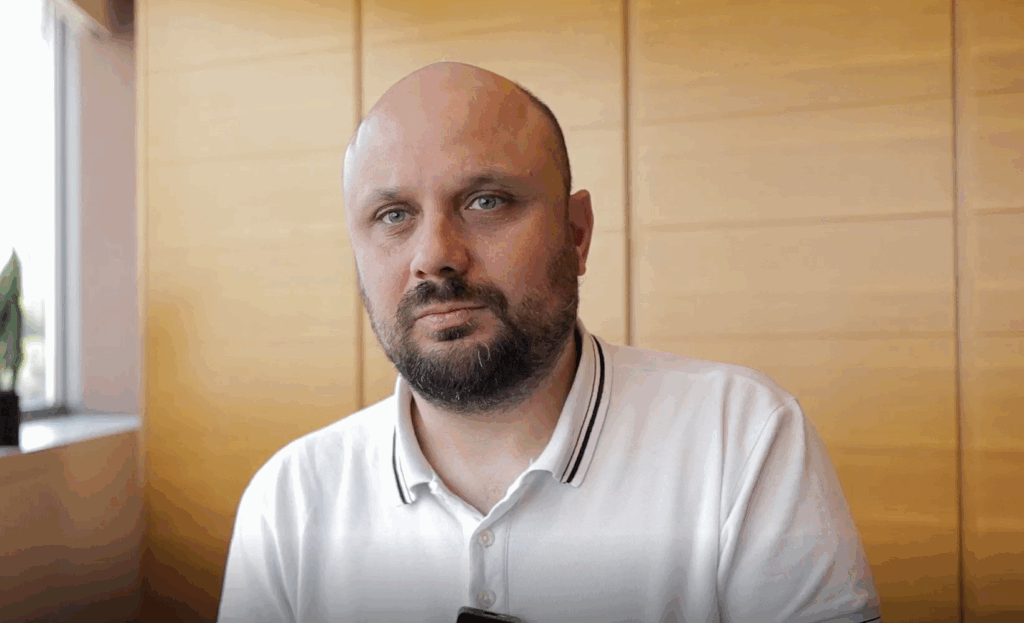

By Ali Ertuğrul, Technical and Quality Manager at USB Certification
USB Certification was Headline Sponsor at the Better Cotton Conference 2025 in İzmir, Türkiye
I’m an environmental engineer, so sustainability is at my heart. As the technical and quality manager for textile and recycling certification departments at USB Certification, I make sure the programme requirements, including those with Better Cotton, are implemented correctly.
This year, we started working in Pakistan with farm-level certification for Better Cotton, something which has been pretty exciting for us. Even though we had done farm certification before, in other countries, this is quite special–and we believe that sustainable production practices will flourish there.
The working models, especially in supply chains, are quite different from country to country. You can have bigger production areas in certain countries, like Bangladesh, or you can have a network of suppliers and subcontractors working together, as in Turkey. So, while we are doing certification, we are also guiding them towards achieving their goals in traceability, to ensure their compliance against the requirements.
Data and collective work
The biggest risk in the sustainability sector right now is greenwashing. There’s nowhere to go if we cannot back up our claims with data, with actual, factual, and verified data. But we also have to propagate that data throughout the supply chain.
In order to be able to do that, you need a technological infrastructure to ensure traceability from the extraction of the raw material–or production of the raw material–all the way to the labels, on the consumer facing product itself.
You cannot do it without data, you cannot do it without assurance, and you definitely cannot do it without in a technological infrastructure.
Different stakeholders need to work together to reach sustainability goals. First of all, we need programme ownership, assurance provider, and certification. We are part of a triangle which are interacting with the other two areas.
Programme owners set the requirements, the criteria, for the compliance of certified entities. They also assign assurance providers, so they can actually verify the system of a certification body, not only monitoring the outcome of the work that the certification bodies are doing. They also make sure the certification bodies have a mature, competent system capable of assessing the requirements of the standard–in the audit and the certification process.
Eyes on the ground
There is another responsibility: we are the eyes on the ground. If we see any deviations, if there’s any ground reality that is deviating from the standard requirements, it’s our responsibility to have that communicated to the programme owners. It is part of the monitoring, evaluationand learning cycle.
As a programme owner, Better Cotton is heavily involved with the implementation of the standard itself, through their implementation partners all over the world. That means, it also gives the standard a localised context. In that sense, it was actually good to witness such a nuanced approach to standard requirements.
With the new certification paradigm that has come up, the collaboration between the program owner and the certification body, like USB Certification, will be tighter in the coming years, thanks to the level of assurance. The level of data collaboration will increase.
Hearing from farmers
At this year’s Better Cotton Conference, the sessions brought some provocative questions into the spotlight, which I quite enjoyed. Also, this year’s conference’s motto was ‘It Starts with Farmers’, and it is always good to hear the opinions of farmers.
Another thing I enjoyed was the networking. The participants were not passively listening to the sessions, they were engaging in conversations with different kinds of stakeholders at the same time. I would say the conference has moved the mission forward.
This is an important event, as it is a hub and a ground, a chance to bring all different stakeholders into the same place. Also, a chance to reiterate what I said before, that this is a dialogue, this is a conversation. It’s also an ever-changing landscape, the market for sustainability and sustainable certification is rapidly changing. So, without engaging in meaningful conversations, we cannot do it.
This is one of the missions of Better Cotton as well, and one of the missions of this year’s conference.







































